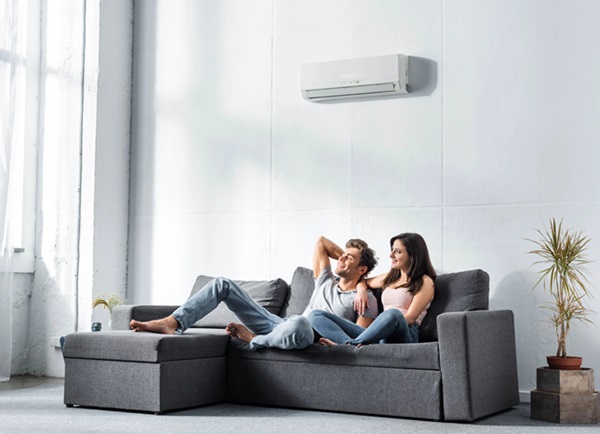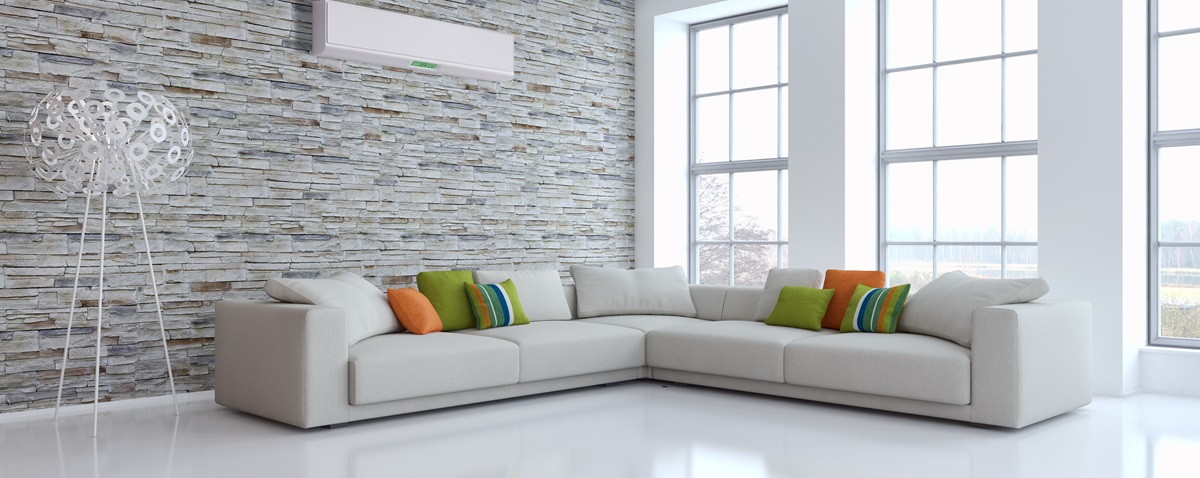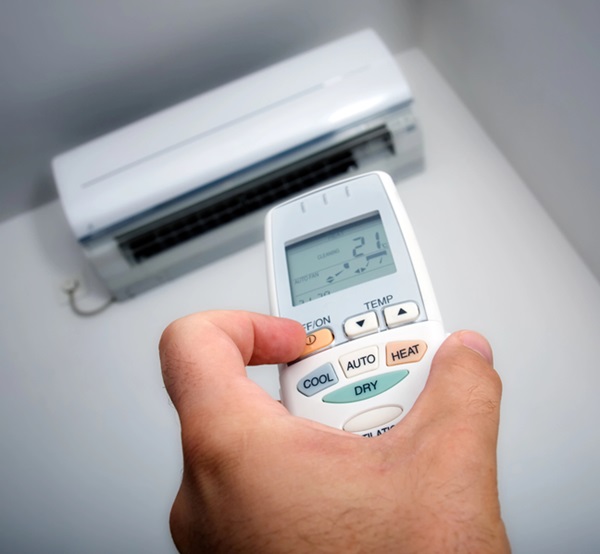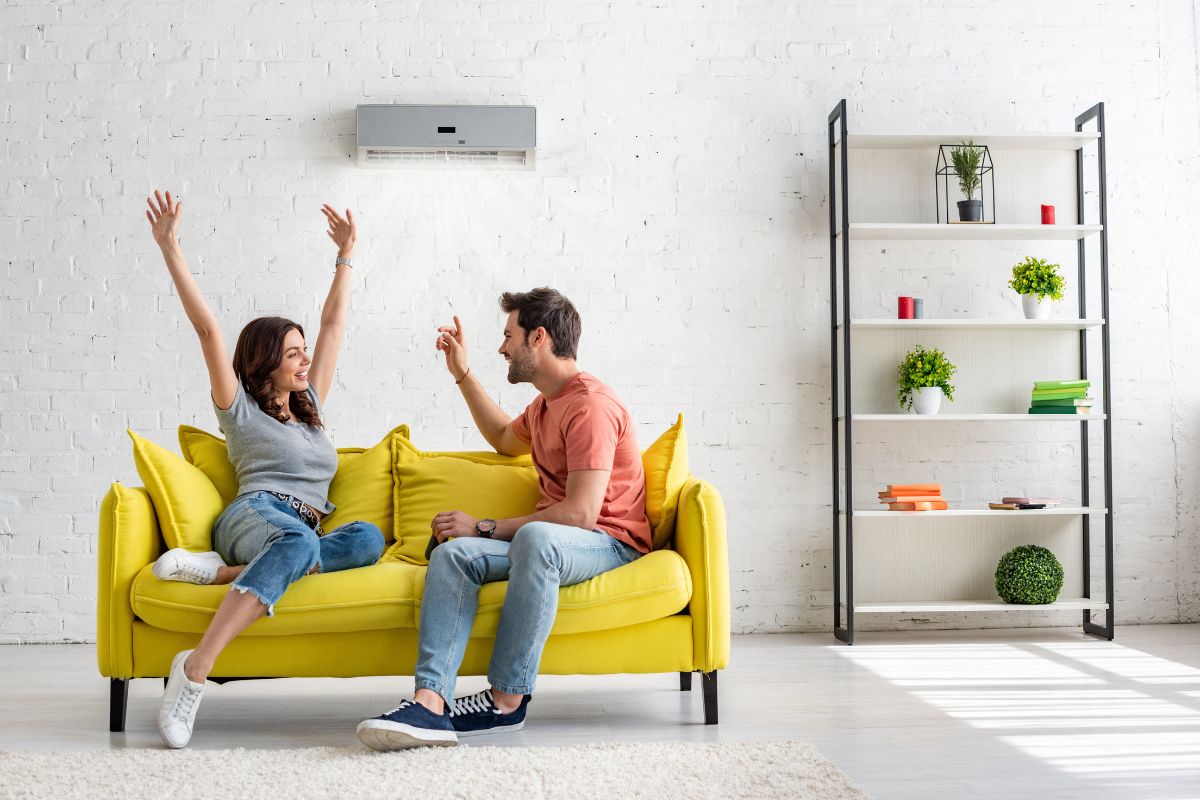What Size Air Conditioning Unit Should You Choose?
What size air conditioner do I need? If I had a dollar for everytime someone asked me that… !!!
If you want to stay comfortable year-round in the often hot and humid subtropical climate of Brisbane and the Sunshine Coast, then you want to choose the right size air conditioner. Choose the wrong aircon size and it can lead to inefficiency, higher electricity bills, and reduced comfort. It’s so important to get it right because as you’ll see it’s false economy to get a cheaper, smaller one. This guide will help you understand the key factors in sizing your air conditioner. Later, I’ll show you how to use available tools, like calculators, to make the right choice.
Factors to Consider When Determining Air Conditioner Size
Size matters. In air conditioning systems, we talk in kilowatts. Remember, it’s not just the area of the room, but it’s also the volume of air in that room that you want to condition. Some people never even considered air conditioning until they invested in solar panel battery systems. The power cost efficiencies and ability to rely on the sun for free power, especially during the day, have certainly changed the game. Even being able to take out special home improvement loans has made a difference to so many. So, let’s look at a few of those factors.
Room Size and Layout
The first thing to consider when choosing an air conditioner is the size of the room. Measure the room’s length, width, and height to get its volume. Rooms with high ceilings or open-plan layouts require more cooling capacity. You also need to factor in if your space is irregularly shaped or has many partitions. There are other choices to be made: Do you want to cool and heat a single room or multiple rooms? Just the living area, the master bedroom, or a combination of spaces? Should you look into split system air conditioners, single ac units, multi-head air conditioning or even ducted? Ducted air conditioning tends to be the least energy efficient and results in the most loss.
Insulation Quality
Honestly, this can be the difference that makes the difference. Insulation plays a far greater role in determining the cooling load of your home. Building standards are frankly not good in Australia and most of us live in homes that leak like sieves. Poorly insulated homes in the Sunshine Coast lose cool air quickly, and sometimes it’s the reason why you require a more powerful air conditioner. Check your home’s insulation level and consider improving it if necessary.
Insulation is not just the batts in the roof, or curtains and blinds, it’s also discovering where you have loss of heat/cool air to the outside through gaps in windows (louvred windows are the biggest culprits) and frames, around doors, and even floorboards. I often recommend when we work out the right size aircon unit, that you take care of the biggest problems so when we install your air con, you are not just sending the heated or cool air outside! Anyway, let’s get back to it…

Windows and Sunlight Exposure
So many houses now have such large windows and rooms with lots of sunlight. These need more cooling power. And depending on the orientation of the room—whether it faces north, south, east, or west—can also affect how much cooling is needed. For example, north-facing rooms in Australia get the most sunlight throughout the day, increasing the cooling demand.
Local Climate Conditions
The Sunshine Coast is known for its warm (OK, hot), humid climate, especially in summer. What this means is your air conditioner needs to handle high temperatures and humidity efficiently. The best air con units to suit colder climates may be a different size for the same home in a hot climate. A unit that’s powerful enough for a cooler, drier climate might struggle here.
Occupancy and Appliance Use
Rooms that are frequently occupied (especially by numerous people at a time) or contain heat-generating appliances like ovens or computers require more cooling power. A busy kitchen, for example, will need a stronger air conditioner than a bedroom of the same size.
How to Correctly Calculate the Size and Type of Air Conditioning Units
Use a Reliable Air Conditioner Size Calculator
One of the easiest ways to determine the right air conditioner size is to use an online estimator. Many of the big air conditioning brand websites have helpful online tools. At SWIFT SOLAR and Electrical, together we’ll work out your needs for your home or business. And we encourage you to test out a few. It’s all part of doing your due diligence. Calculators may ask you to enter your room dimensions, including height, and they will give you an estimate of the required capacity. Some are more complex than others and may factor in other things like your location to assist you a little more accurately.
Manual Calculation Method
If you prefer a basic, hands-on approach, you can manually calculate the needed capacity. Start by calculating the room’s area in square meters (length x width). Then, multiply the area by a factor that reflects the room’s conditions:
- For a living room or space with moderate sunlight, use 125-150 watts per square meter. NB: This is an area calculation not volume, so doesn’t take into account ceiling height. It’s just a guide. That’s why it’s important to take all the relevant factors into account.
- Adjust upward for poorly insulated spaces, raked or tall ceilings, or rooms with a lot of sun exposure.
Here’s a simple table to help:
| Room Size (m²) | Recommended Capacity (kW) |
|---|---|
| Up to 20 | 2.5 – 3.5 |
| 20 – 40 | 3.5 – 5.0 |
| 40 – 60 | 5.0 – 7.0 |
| 60 – 80 | 7.0 – 8.5 |
| 80+ | 8.5+ |
Common Mistakes to Avoid
So many elements to consider, so naturally, mistakes can be made. The big priorities are to get the size right, handle the loss of air through spaces, and investigate your insulation. Here are the common mistakes…
Undersizing Your Air Conditioner
An undersized air conditioner will struggle to cool your home, leading to overworking, higher energy consumption, and a shorter lifespan for the unit. Remember, if you keep losing the conditioned air your system has to work harder.
Oversizing Your Air Conditioner
On the other hand, an oversized unit can short cycle, meaning it turns on and off too frequently. This can lead to uneven cooling, excess humidity, and wear and tear on the system.
Ignoring Professional Advice
It’s always a good idea to consult a certified installer who understands the Sunshine Coast’s specific climate conditions… you know, like SWIFT SOLAR and Electrical (shameless plug!). They (aka “we”) can help you avoid common pitfalls and choose the best system for your home.
Choose the Right Size to be Energy Efficient and Comfortable
If you’re looking for an air conditioner for your home, or office or business, size does matter. Sizing your air conditioner correctly is essential for comfort and energy efficiency in the Sunshine Coast’s challenging climate. To explore all the factors above is the way to find the air conditioner you need. Use reliable tools such as the big brand names’ online calculators and consider all factors, from the correct size of the room or rooms, to insulation, air leakage, and sunlight exposure.
If you want to install the best top-quality air conditioning in your home, that saves you money, you’ll need professional advice and installation. Call us at SWIFT SOLAR and Electrical. We’re here to help you every step of the way. Catch us on 0422 215 7334. Always happy to help.
No related posts.




